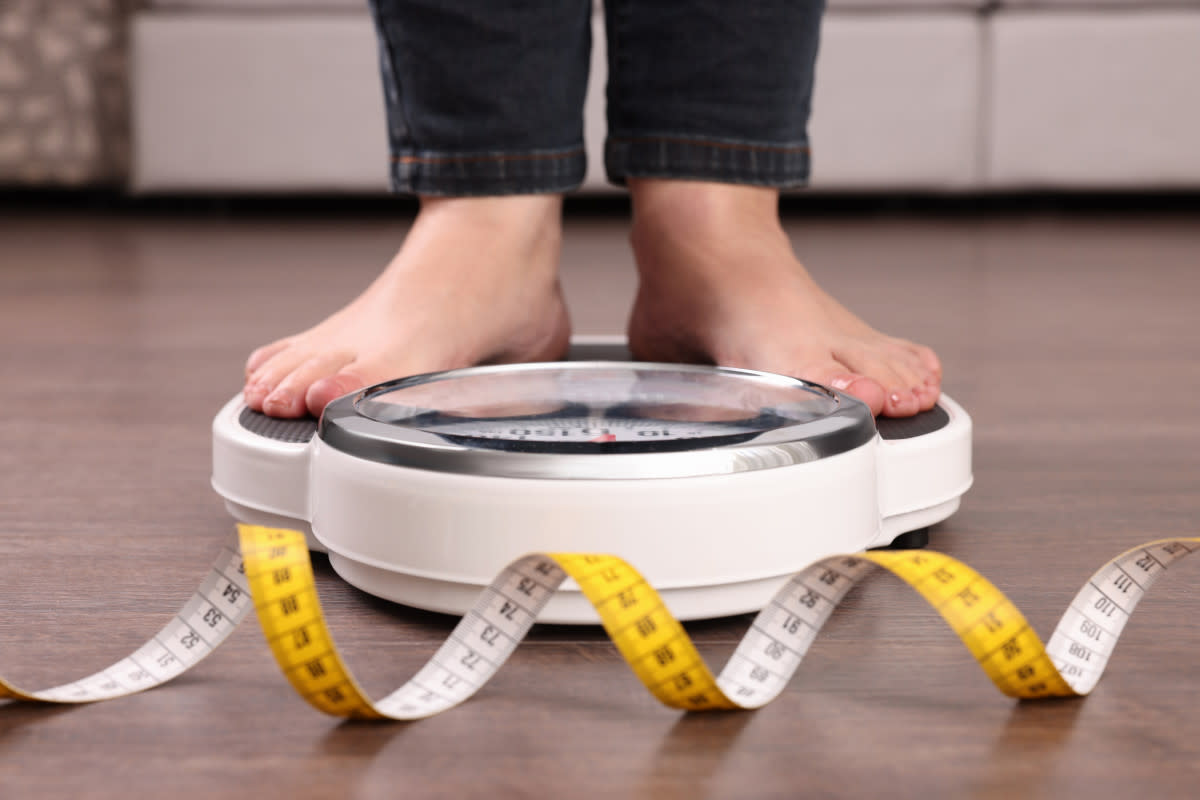This Is the #1 Surprising Thing That Helps With Weight Loss After Age 50, According to a Geriatrician

If weight loss is one of your health goals and it’s something you’ve been struggling with, rest assured that you are not alone. Nearly half of all adults in the U.S. are trying to lose weight, including 43% of people older than 60, according to the Centers for Disease Control and Prevention.
It’s not your imagination if you feel that it’s harder to lose weight now than it may have been for you a decade or two ago; losing weight does become trickier the older we get. But it’s certainly not impossible. It’s something geriatrician Dr. Thomas Perls, MD, MPH, FACP, who is a professor of medicine at Boston University School of Medicine, works on with patients regularly and his number one tip for weight loss for people older than 50 just might surprise you.
Why Is It Harder to Lose Weight the Older We Get?
According to Dr. Perls, there are a few reasons why weight loss is more difficult after age 50. One reason is that we tend to lose muscle mass as we age. “[People older than 50] tend to have fewer of what are called type two muscle fibers, also called fast-twitch fibers,” he says, explaining that these types of fibers help with activities including jumping and sprinting. He explains that as we age, muscles are filled with more connective tissue and fat. “This leads to lower metabolism and less efficient use of our sources of energy,” Dr. Perls says. The result? Less fat burning.
“There is the vicious cycle that the more overweight we get, generally the less aerobic exercise we are able to muster and this leads to more weight gain,” Dr. Perls says, explaining another reason weight loss can be harder as we age. To break this cycle, he says that having healthy dietary and lifestyle habits in place is key.
Related: Want to Lose Weight? Here Are 16 Actually Doable Ways to Do It Quickly and Safely
One Surprising Habit That Can Help With Weight Loss After 50
If you’re older than 50 and want to lose weight, there’s one place it can be helpful to start with and it may come as a surprise: weight training (also referred to as strength training or resistance training). While there’s a lot of talk about the benefits of walking and other aerobic activities (and there's good reason for that), Dr. Perls says that regular weight training can help rebuild the muscle we naturally lose as we age, and it’s an exercise habit many people neglect. The American Heart Association recommends strength training at least twice a week.
Dr. Perls explains that weight training helps build muscle mass, which burns more fat. It also protects joints and keeps bones strong—two particularly important benefits for anyone older than 50.
What does weight training (or strength training) look like exactly? As you might guess from the term, many of these exercises involve using weights, such as bicep curls, deadlifts, and chest presses. You can also use your own body weight as resistance, such as by doing push-ups. Exercise classes that incorporate strength training include yoga, Pilates, and any class that incorporates weights.
Related: Wait—Why Am I Not Losing Weight on Ozempic?
Other Important Habits for Weight Loss
While weight or strength training is certainly helpful for weight loss, Dr. Perls says it’s important not to just focus on one weight loss habit. “Doing just one thing doesn’t quite do the trick,” he says. “It really takes a combination of building muscle with weight training, aerobic exercise, and modifying your diet [to include] fewer high-glycemic foods.
In addition to strength training twice a week, the American Heart Association recommends getting 150 minutes of aerobic exercise a week or 75 minutes of vigorous aerobic exercise a week. Dr. Perls says that this can include exercises such as running, fast walking, bicycling, hiking, or swimming.
In terms of why it’s important to minimize foods that are high-glycemic (foods that spike blood sugar quickly), Dr. Perls explains that these foods cause the body to excrete insulin, which then builds fat. For this reason, he says it’s important to minimize foods including pasta, white bread, sweets, and sodas—which are all high-glycemic.
What should you eat instead? Scientific studies show that following the Mediterranean diet (which focuses on vegetables, fruit, whole grains, olive oil, fish, and plant proteins) can be effective for older adults when it comes to weight loss.
It may be harder to lose weight after age 50 than for people who are decades younger, but don’t be discouraged if this is something you’re struggling with: It’s absolutely not impossible. Fill your diet with nutrient-rich foods, and prioritize both aerobic exercise and strength training. Then, you'll have a winning formula for weight loss. You’ve got this!
Next up: 'I'm 67 and In the Best Shape of My Life—Here's What a Typical Day of Exercise Looks Like for Me'
Sources
Dr. Thomas Perls, MD, MPH, FACP, geriatrician and professor of medicine at Boston University School of Medicine
Attempts to Lose Weight Among Adults in the United States, 2013-2016. Centers for Disease Control and Prevention.
Strength and Resistance Training Exercise. American Heart Association.
The Intensity and Effects of Strength Training in the Elderly. Deutsches Arzteblatt.
The Effect of High Resistance Weight Training on Reported Pain in Older Adults. Journal of Sports Science & Medicine.
American Heart Association Recommendations for Physical Activity in Adults and Kids. American Heart Association.
Perspective: Does Glycemic Index Matter for Weight Loss and Obesity Prevention? Examination of the Evidence on "Fast" Compared with "Slow" Carbs. Advances in Nutrition.
